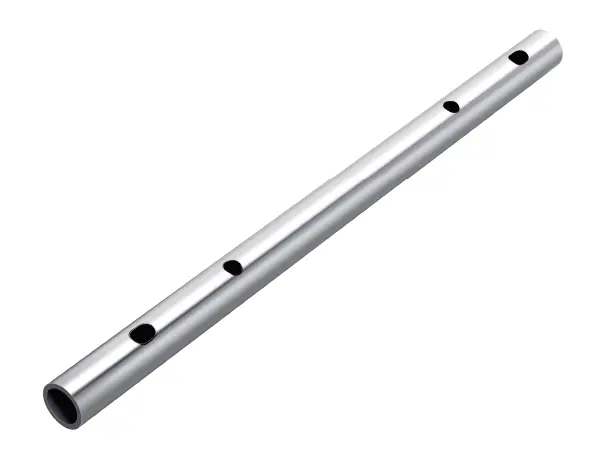High-Quality Precision Steel Pipes for Industrial Applications and Custom Solutions
Nov . 10, 2024 13:02
Precision Steel Pipe An Overview
Precision steel pipes, often characterized by their high dimensional accuracy and excellent surface finish, have become an essential component in various industries. These pipes are designed to meet stringent specifications and are used in applications that require precise measurements, durability, and reliability. This article provides an overview of precision steel pipes, their manufacturing processes, applications, and advantages.
What are Precision Steel Pipes?
Precision steel pipes are seamless or welded tubes made from high-quality steel alloys. These pipes are manufactured with a high degree of precision, allowing for tight tolerances and consistent wall thickness. The manufacturing process often involves advanced techniques such as cold drawing, extrusion, or precision welding, which help achieve the desired specifications. The result is a product that not only meets industry standards but also enhances the efficiency and safety of applications.
Manufacturing Processes
The production of precision steel pipes typically begins with high-quality steel billets. The manufacturing processes can vary depending on the required specifications, but the following steps are commonly involved
1. Casting or Steelmaking The initial phase involves melting iron ore and other alloying elements to create molten steel, which is then cast into billets.
2. Hot Working The billets are heated and then extruded or pierced to form hollow tubes. Hot working helps in achieving the desired diameter while maintaining structural integrity.
3. Cold Drawing In this step, tubes are subjected to a drawing process at room temperature, which further refines their dimensions and enhances their mechanical properties. Cold drawing is crucial for achieving the tight tolerances characteristic of precision steel pipes.
4. Heat Treatment To improve the mechanical properties such as tensile strength and hardness, heat treatment processes like annealing may be performed.
5. Finishing The pipes undergo various finishing processes including pickling, passivation, and surface polishing to enhance corrosion resistance and surface quality.
6. Quality Control Rigorous quality assessments are conducted to ensure that the pipes meet the required specifications. This often includes mechanical testing, dimensional inspection, and non-destructive testing methods.
Applications of Precision Steel Pipes
Precision steel pipes find extensive applications across many industries due to their superior features. Some notable applications include
precision steel pipe
- Aerospace and Defense In these sectors, the demand for high-performance materials is essential. Precision steel pipes are used in aircraft components and military equipment, ensuring reliability and safety.
- Automotive Industry Precision pipes are widely used in the manufacturing of critical automotive components, including fuel systems, exhaust systems, and hydraulic lines.
- Oil and Gas In the oil and gas sector, precision pipes are utilized in drilling equipment, pipelines, and pressure vessels, where high reliability and resistance to corrosion are paramount.
- Manufacturing Equipment Various machinery and equipment in manufacturing processes require the use of precision pipes, which contribute to the efficiency and effectiveness of operations.
- Medical Devices The medical industry also benefits from precision steel pipes, especially in the development of surgical instruments and devices that require a high degree of accuracy.
Advantages of Precision Steel Pipes
The advantages of precision steel pipes over conventional pipes are manifold
1. Tight Tolerances Precision pipes offer superior dimensional accuracy, making them suitable for applications where precision is crucial.
2. Improved Mechanical Properties The manufacturing processes ensure enhanced mechanical properties, including tensile strength, hardness, and durability.
3. Corrosion Resistance Many precision steel pipes, especially those made from stainless steel alloys, exhibit excellent resistance to corrosion, making them ideal for demanding environments.
4. Cost-Effectiveness While the initial cost may be higher, the long-term savings due to reduced maintenance and increased longevity make precision steel pipes a cost-effective choice.
5. Versatility Precision steel pipes can be tailored to meet specific requirements, making them versatile for various industries and applications.
Conclusion
In summary, precision steel pipes are integral to modern manufacturing and engineering processes. Their advanced manufacturing techniques, versatile applications, and numerous advantages make them indispensable in industries ranging from aerospace to automotive and beyond. As technology continues to evolve, the demand for high-quality precision steel pipes is likely to grow, further highlighting their importance in today's industrial landscape. Through continued innovation and adherence to high standards, precision steel pipes will play a crucial role in shaping the future of many sectors.
 Afrikaans
Afrikaans  Albanian
Albanian  Amharic
Amharic  Arabic
Arabic  Armenian
Armenian  Azerbaijani
Azerbaijani  Basque
Basque  Belarusian
Belarusian  Bengali
Bengali  Bosnian
Bosnian  Bulgarian
Bulgarian  Catalan
Catalan  Cebuano
Cebuano  Corsican
Corsican  Croatian
Croatian  Czech
Czech  Danish
Danish  Dutch
Dutch  English
English  Esperanto
Esperanto  Estonian
Estonian  Finnish
Finnish  French
French  Frisian
Frisian  Galician
Galician  Georgian
Georgian  German
German  Greek
Greek  Gujarati
Gujarati  Haitian Creole
Haitian Creole  hausa
hausa  hawaiian
hawaiian  Hebrew
Hebrew  Hindi
Hindi  Miao
Miao  Hungarian
Hungarian  Icelandic
Icelandic  igbo
igbo  Indonesian
Indonesian  irish
irish  Italian
Italian  Japanese
Japanese  Javanese
Javanese  Kannada
Kannada  kazakh
kazakh  Khmer
Khmer  Rwandese
Rwandese  Korean
Korean  Kurdish
Kurdish  Kyrgyz
Kyrgyz  Lao
Lao  Latin
Latin  Latvian
Latvian  Lithuanian
Lithuanian  Luxembourgish
Luxembourgish  Macedonian
Macedonian  Malgashi
Malgashi  Malay
Malay  Malayalam
Malayalam  Maltese
Maltese  Maori
Maori  Marathi
Marathi  Mongolian
Mongolian  Myanmar
Myanmar  Nepali
Nepali  Norwegian
Norwegian  Norwegian
Norwegian  Occitan
Occitan  Pashto
Pashto  Persian
Persian  Polish
Polish  Portuguese
Portuguese  Punjabi
Punjabi  Romanian
Romanian  Samoan
Samoan  Scottish Gaelic
Scottish Gaelic  Serbian
Serbian  Sesotho
Sesotho  Shona
Shona  Sindhi
Sindhi  Sinhala
Sinhala  Slovak
Slovak  Slovenian
Slovenian  Somali
Somali  Spanish
Spanish  Sundanese
Sundanese  Swahili
Swahili  Swedish
Swedish  Tagalog
Tagalog  Tajik
Tajik  Tamil
Tamil  Tatar
Tatar  Telugu
Telugu  Thai
Thai  Turkish
Turkish  Turkmen
Turkmen  Ukrainian
Ukrainian  Urdu
Urdu  Uighur
Uighur  Uzbek
Uzbek  Vietnamese
Vietnamese  Welsh
Welsh  Bantu
Bantu  Yiddish
Yiddish  Yoruba
Yoruba  Zulu
Zulu 












